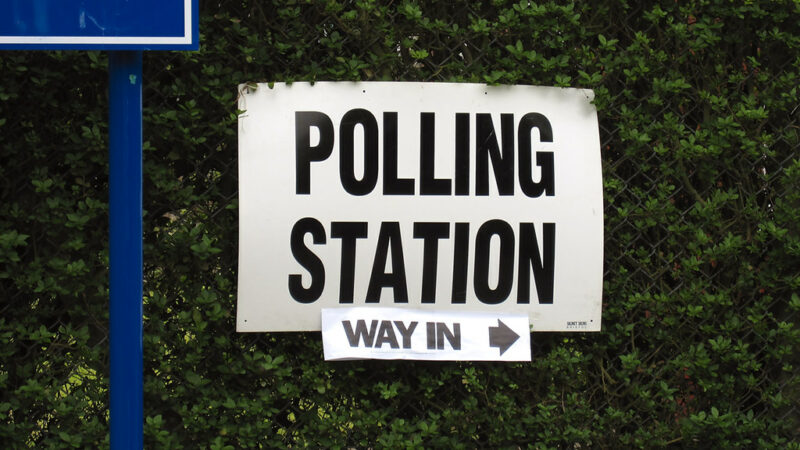Batley and Spen is one of many northern Labour seats that are vulnerable to the Conservatives as they hoover up the working-class Leave vote.

Almost one in three adults in West Yorkshire’s Batley and Spen constituency are economically inactive.
For those who are in work, residents take home about £130 a week less than the full-time average for Britain. In addition, 20% of the constituency’s population is of Asian heritage; so it’s inevitable that the Batley and Spen by-election will be fought based on dangerous and toxic culture wars.
Tracy Brabin’s victory in the West Yorkshire mayoral election triggered a by-election in her seat of Batley and Spen. The law says one person cannot be both a crime commissioner and an MP – and the West Yorkshire Mayor is also West Yorkshire’s crime commissioner.
Batley and Spen is one of many northern Labour seats that are vulnerable to the Conservatives as they hoover up the working-class Leave vote. Labour lost the Hartlepool by-election because much of the large Brexit Party vote at the 2019 election went to the Tories.
It is estimated that if similar shifts were repeated in other seats, there are more than 30 that would go Tory, including the seats held by Ed Miliband, Yvette Cooper and Dan Jarvis.
But Batley and Spen is no ordinary constituency. It was home to the late, great Jo Cox MP, who was tragically murdered on the 16th June 2016, a week before the EU referendum, by a far-right attacker. She was stabbed 15 times and shot three times outside her constituency surgery in Birstall, near Leeds.
Over the years, a lot of fringe parties have contested in Batley and Spen: Liberty GB, BNP, and the English Democrats. Thankfully, none of these parties have succeeded. Quite the opposite, in fact. The good people of Batley and Spen have rejected them and most of the time, these parties have lost their election deposits.
But in this by-election, some divisive candidates are standing. Perhaps, as a media stunt, or because politics is so volatile, unprecedented and pernicious, they may actually have a chance of succeeding.
The most divisive candidate, without a doubt, is Jayda Fransen, a far-right activist and former Britain First deputy leader. Weeks ago, she stood against Nicola Sturgeon in Glasgow Southside (during the Scottish elections), receiving just 46 votes.
Thomas Mair, the far-right activist who murdered Jo Cox shouted “Britain first, this is for Britain, Britain will always come first”, when he brutally murdered Jo Cox.
Jayda Fransen, the former leader of Britain First, has been jailed in the past for a series of hate crimes against Muslims. With Batley and Spen having a large Muslim population, it is a worry that she will stoke religious tensions, which always become lit during elections, as candidates always divide communities.
The most notorious candidate in the Batley and Spen election is George Galloway. Galloway, like Fransen, stood in the Holyrood elections, but it came to nothing. Galloway’s most successful election was in Bradford West, a 30 minutes drive from Batley and Spen, in 2012, when he won the by-election.
I used to live in Bradford West (when he was my MP), and it was so fascinating, yet so strange how he captivated the Pakistani Muslim vote in Bradford. Again, Batley and Spen has a huge Muslim Pakistani population and a contentious issue right now is the Israel and Palestine plight.
Galloway is using this to his advantage. He is out in Batley and Spen talking about this issue. His unequivocal stance on the Israel and Palestine plight will most certainly play to his advantage. Galloway could exploit violence in Gaza to hand the Conservatives a victory. Identity politics could play a part in who people vote for.
The Yorkshire Party is also standing, a moderate and progressive party putting Yorkshire first, during the West Yorkshire Mayoral election, the Yorkshire Party came third, securing 58,000 votes, placing them above the Greens, LibDems and Reform UK. The Yorkshire Party was set up to campaign on the idea of greater devolution for Yorkshire.
Founded in 2014, the Party is pro-devolution and pledges to judge issues on how they will affect Yorkshire, its people, economy and environment. The way the Labour Party can stop the Yorkshire Party from taking Labour votes is to pledge for more devolution, a Yorkshire parliament, something which I have been calling for.
The Labour candidate is Kim Leadbeater, Jo Cox’s younger sister. Leadbeater declared herself “the candidate the Tories fear”. Leadbetter is the best choice for Labour, a local and popular figure. Though she faces the ‘charge’ that she will win votes simply for being Jo Cox’s sister.
But the Labour Party is desperate, they can’t afford to lose the Batley and Spen by-election. Writing in The Guardian, Dianne Abbott said, “if Labour loses, it must surely be curtains” for Keir Starmer – a statement that is at the heart of George Galloway’s vote-splitting campaign.
But most interestingly, Abbott said: “Support from the large minority ethnic electorate may enable the party to hold the seat”. So perhaps Labour is praying its more ardent supporters will turn out for them, through the BAME community.
For progressives, there is the constant worry that the Lib Dems, The Yorkshire Party, the Greens and now Galloway’s Workers’ Party will split the left-wing vote and let the Tories in.
So, how will the Batley and Spen by-election be fought: on culture wars, identity politics and bitterness, or on ideas of loyalty?
Qais Hussain is a 17-year-old A Level student and Labour Party member from West Yorkshire.
To reach hundreds of thousands of new readers and to make the biggest impact we can in the next general election, we need to grow our donor base substantially.
That's why in 2024, we are seeking to generate 150 additional regular donors to support Left Foot Forward's work.
We still need another 124 people to donate to hit the target. You can help. Donate today.



